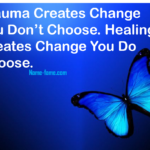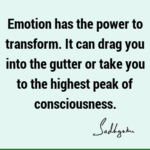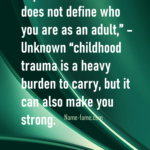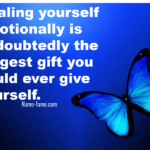If you recently had an unpleasant occurrence (Emotional Trauma), you may be concerned that your current state of well-being will last forever. There are numerous actions you may take to support yourself going forward, even though it may take a while to feel completely content and healthy again. Recognize that you will be alright once more and that you possess the ability to ensure that your recuperation process is successful.
In this article, the topic of emotional trauma recovery is covered. We’ll start by defining trauma precisely so you can see that’s what you’re going through. After that, we’ll go over several actions and suggestions you can do.
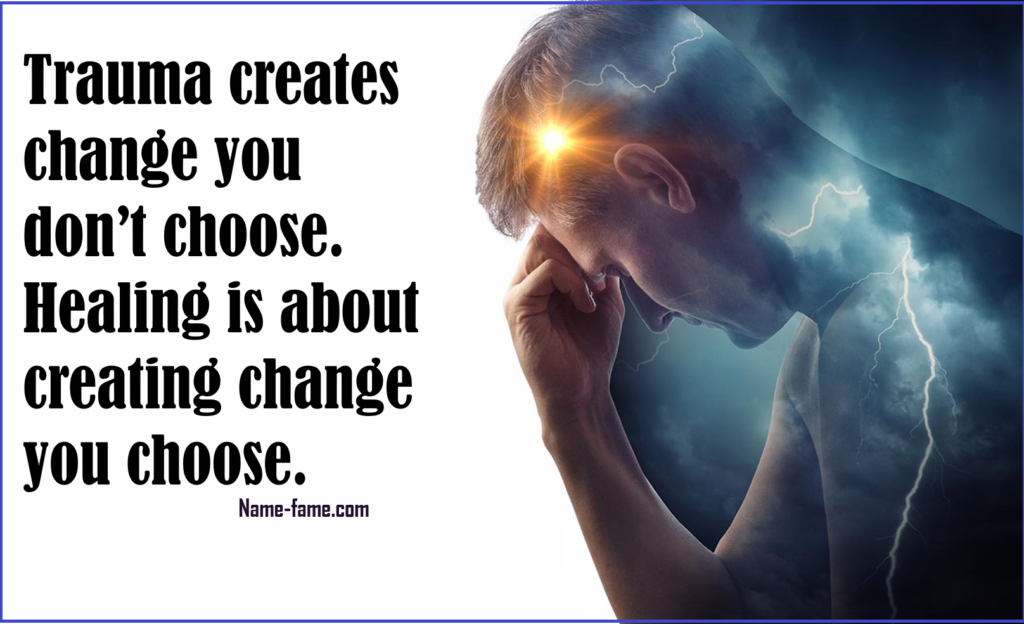
What Does Emotional Trauma Mean?
An adverse occurrence leads to trauma. Post-traumatic stress disorder, or PTSD, is a frequent term for what happens when you feel mentally or emotionally harmed by anything that has happened.
SEE ALSO: How to Improve Children’s Self-Esteem and End Low Self-Esteem
The death of a loved one, being abused, being in a car or airplane accident, going through a very trying relationship or breakup, or experiencing a calamity like a storm or earthquake are a few examples of emotional traumatic occurrences.
You are most likely suffering trauma if an event similar to one of the following causes you to feel surprised, saddened, anxious, or in any other way overwhelmed. The trauma is your body’s and mind’s reaction to the event or experience, not the incident or experience itself. Stress from trauma alters the brain.
Strategies for Recovering from Emotional Trauma
Accept Assistance
The most important thing about moving past trauma is wanting to recover and being open to receiving support and assistance. Your healing process may end up taking a lot of time to complete alone, requiring a lot of help from the community or individual therapy. You will be in the best position to recuperate if you are open to receiving support, no matter how it unfolds spontaneously.
Support might come from friends, coworkers, a therapist, a support group, or loved ones. Here, it’s crucial to have an attitude that recognizes that you might be able to seek assistance from others and that you’re willing to accept such assistance.
Get the Assistance You Need
The next step is to determine the best kind of assistance for your circumstances. If you think therapy would be a good fit for you, you can explicitly search for a therapist who has training in trauma informed care to make sure you get the best care available.
SEE ALSO: Why Emotional Intelligence Matters and How to Develop It
Alternatively, it could be more comfortable for you to go to a support group where you can connect with people who have gone through similar things and discover empathy and a sense of belonging.
Establish Contact With Others
Whether or not you join a support group focused on healing, it will still be beneficial for your socialization. You are under no need to share your experience with the group, and you are under no obligation to discuss your trauma with others if doing so doesn’t feel right for you.
Human happiness depends on relationships, and solitary behavior during trauma recovery might have detrimental effects such as depression. When the timing is appropriate, spend some quality time with friends and talk about your experiences.
Motion of the Body
PTSD symptoms have been demonstrated to improve with exercise. Moving about and exercising not only promotes healing directly but also releases endorphins and other feel-good chemicals into your body.
It’s acceptable if you don’t enjoy exercising! Go for walks, engage in enjoyable activities like roller skating or biking, follow a yoga DVD, or host a private dance party. You will heal more quickly if you engage in any physical activity.
Handle Your Emotions
Keeping a journal is a popular strategy for stress management and navigating challenging situations. If it seems like something that could help you, give it a try. It will still be beneficial to take some time to sit with your feelings even if it doesn’t.
Try to connect with the feelings you are experiencing, give yourself permission to feel them fully for a little while, and then take note of how they pass.
SEE ALSO: 9 Parenting Errors That Erode Children’s Self-Esteem
The first step toward recovering from trauma is acknowledging and embracing your feelings. It’s normal to have uncomfortable emotions during the process, such as rage. A wide range of emotions are normal, and it’s okay if a few of them are unfamiliar to you.
Take Care of Yourself
Stress/emotional trauma is reduced by self-care. Not to mention, it feels nice. Throughout your healing process, remember to take care of yourself by making time each day to do activities that make you feel good about yourself and with love.
Self-care activities can be as easy and inexpensive as getting a bath. It’s important that you make time for self-care and engage in activities that fill you with affection.
Steers clear of recreational drugs.
When recovering from trauma, alcoholism or drug addiction may be quite alluring. This is not the proper moment for recreational drugs because they are addictive and lead your brain to cease thinking and feeling.
If you’re deliberately avoiding your feelings by abusing drugs, you will not be able to process them. Recognize that this is a passing phase, and after you’ve given yourself enough time to recover from your trauma, you can resume social drinking.
Take pauses.
You may have increased fatigue during the healing process. Alternatively, you may have a sense of physical energy but poor mental function. It takes an enormous amount of energy to heal from trauma.
Being kind to yourself is the greatest approach to handle your decreased energy during this period, both mentally and physically. Maintaining your energy level and preventing burnout can be achieved by taking short rests, especially when engaging in enjoyable activities.
SEE ALSO: Changes That Will Take Place When Toxic Individuals Are Removed from Your Life
Engage in mindfulness or meditation.
A practice that has been shown to aid in healing is mindfulness. It’s a way of living where you intentionally choose to live in the present. You remain mindful of everything, including your thoughts, emotions, and physical state. You can reduce your tension by doing this.
Furthermore, as natural extensions of awareness, meditation and breathwork can lower stress and promote a more at ease, contented sense of self. All of these aid in the healing process.
Put Your Creativity Into Practice
And last, enjoying yourself is a wonderful way to heal. You may define being creative as either creating or simply appreciating music. It could be reading novels, keeping a journal, or even just creating poems. People’s physiological and psychological results have been shown to improve when they use their brain in creative and artistic efforts.
Attempt art therapy, or just be totally free with your imagination and work on it on your own. It matters that you work on any creative project that makes you feel good.
SEE ALSO: The Most Effective Way To Manage An Emotional Manipulator
Recovery from a traumatic event may seem daunting. Recognize that you have a plethora of options at your disposal, and with any luck, you’ll be feeling better very soon.
BEST BOOK – It Didn’t Start with You: How Our Identity Is Shaped by Inherited Family Trauma and How to Break the Cycle

